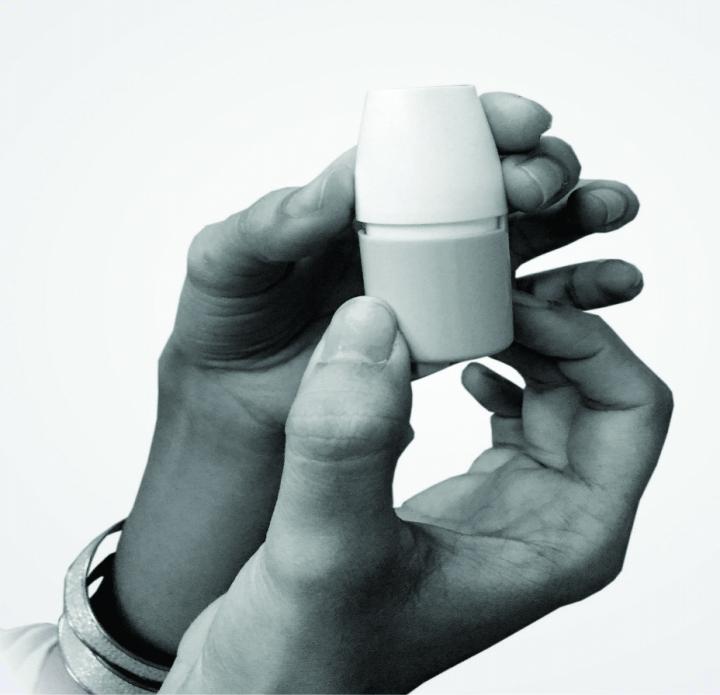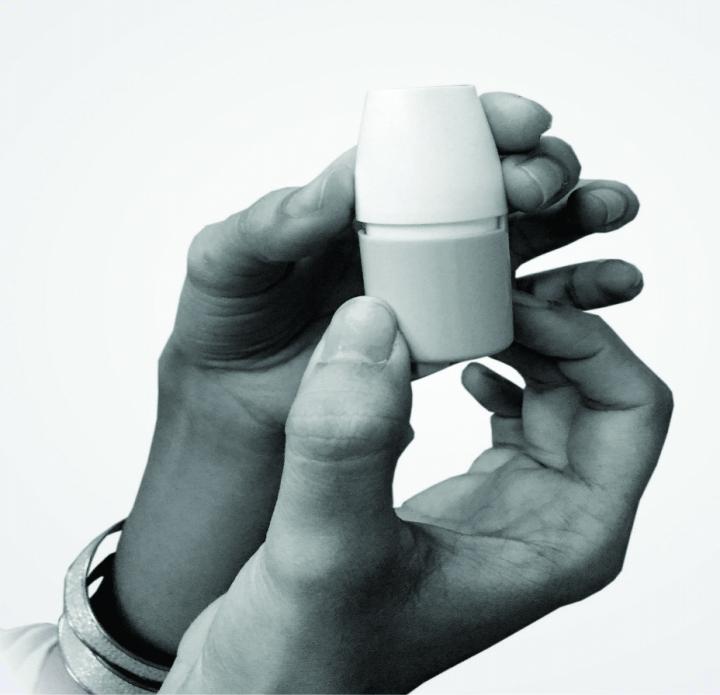
Credit: Monash University
The Monash University Institute of Pharmaceutical Sciences (MIPS) today announced positive results from a first-in-human study of a new, inhaled form of a medicine that could significantly reduce maternal deaths around the world. The results open the possibility of a streamlined pathway to registration, meaning that the medicine could be accessible to mothers much sooner than would otherwise be possible.
Every year, over 300,000 women in low and low-middle income countries die during pregnancy and childbirth. Postpartum haemorrhage (PPH) is the single largest cause of these deaths.
PPH can be prevented by administering a drug called oxytocin, which is recommended by the World Health Organisation and is widely used in wealthy countries. However, as an injection, oxytocin requires refrigeration and a skilled medical professional to administer it safely. In low and low-middle income countries, one or both of these requirements may not be available.
To address this unmet need, researchers at MIPS, in collaboration with GlaxoSmithKline in London, who sponsored the study, have been developing an inhalable, dry-powder form of oxytocin.
Today at the Royal College of Obstetricians and Gynaecologists World Congress in Cape Town, South Africa, the results of the first in-human trial of the new formulation were announced.
The study demonstrated, in a small cohort of non-pregnant female volunteers, that the effects that inhaled oxytocin has on the body are not meaningfully different from its injected counterpart. This gives confidence that the inhaled form of oxytocin will deliver similar effects in prevention of PPH when given to mothers immediately after giving birth.
The results present the possibility that the new medicine will be able to take advantage of a streamlined pathway to registration, meaning that it could reach the mothers who need it much sooner.
Associate Professor Michelle McIntosh, Project Leader at MIPS, said that this first in-human data offers hope to the many women in resource-constrained settings who do not currently have access to this essential medicine.
"These results show that oxytocin can be delivered similarly via inhalation or injection and therefore we are less likely to be required to conduct the extensive and costly trials needed for an entirely new drug. Instead, we should be able to move forward with trials on a much smaller scale, featuring patients numbering in the hundreds rather than tens of thousands, potentially making the medicine available much sooner," Associate Professor McIntosh said.
This positive data has supported the initiation of clinical studies evaluating inhaled oxytocin when given to women immediately after birth, the time at which oxytocin is routinely administered for prevention of PPH.
###
The study was conducted and funded by GSK with Monash support funded by the McCall MacBain Foundation, the Planet Wheeler Foundation and Grand Challenges Canada and the government of Canada.
Media Contact
Michelle McIntosh
[email protected]
61-438-009-882
@MonashUni
http://www.monash.edu.au
############
Story Source: Materials provided by Scienmag




